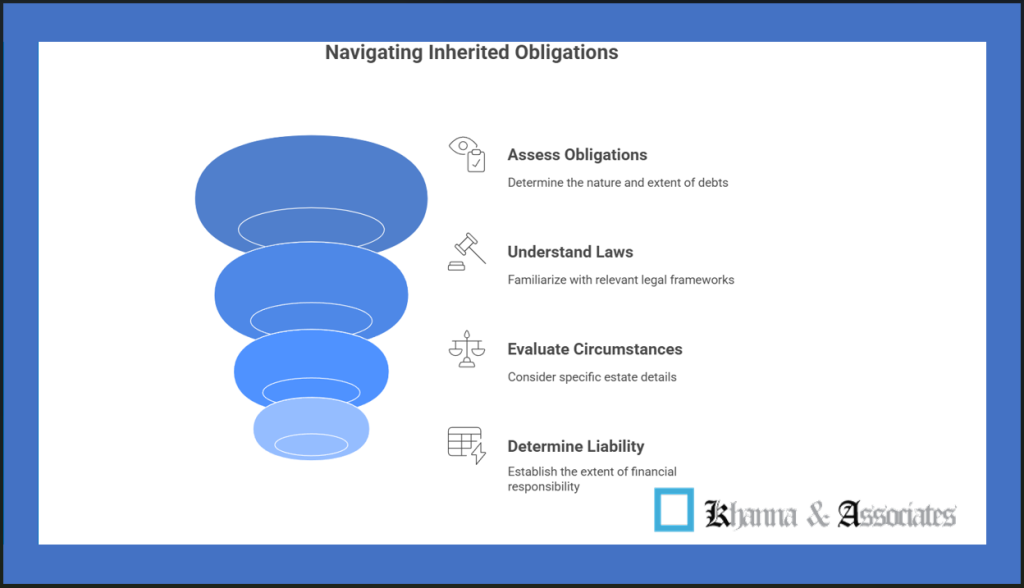Introduction
We’ve all heard stories about legal heirs inheriting more than just property, sometimes they inherit legal battles and debts. It can be a real headache trying to figure out what you’re on the hook for and what you’re not. The Supreme Court has cleared things up with a super important judgement. You aren’t liable for the personal contractual obligations of someone who has passed away.
This article is your guide to understanding this game-changing decision. We’ll dive into what “personal contractual obligations” actually means and explore the difference between a monetary debt and a duty that relies on a specific person’s skills. We’ll also break down the case that brought this to the forefront.

Contracts and Their Obligations
A contract is basically a legally binding promise between two or more people. It lays out what each party needs to do. Most of the time, we don’t think about what happens if one person passes away. Does the contract just disappear? Or do the kids have to finish the job? This is a question that has caused a lot of confusion, but thankfully, the Supreme Court has weighed in.
Contracts can create two main kinds of obligations:
- Money Related: This is all about paying up, like a loan or a fine.
- Personal Related: This involves things that need a specific person’s special skills or talents, like a famous painter hired to create a masterpiece or a developer who has to oversee a construction project.
The Case That Cleared the Air
The Supreme Court’s ruling came from a specific case, Vinayak Purshottam Dube (Deceased) through LRs. vs. Jayashree Padmakar Bhat & Ors, which involved a developer who had a “Development Agreement” with a client. The developer had promised to build some flats and pay some cash. But, as often happens, the developer fell short—the construction was low-quality, and the payments weren’t made.
The unhappy client took the developer to the consumer court. The case went all the way up to the National Consumer Disputes Redressal Commission (NCDRC). While the case was still ongoing, the developer passed away, and his legal heirs (his family) were then brought into the case.
The NCDRC eventually ruled against the developer and told his family to do two things:
- Pay the money owed, plus interest.
- Finish the construction, get all the certificates and hand over the properties.
The Supreme Court’s Big Observation
The legal heirs weren’t too happy about being told to finish a construction project they knew nothing about. So they went to the Supreme Court. Their argument was simple. They couldn’t be held responsible for the developer’s personal duties, which required his specific skills.
The Supreme Court agreed. They made it clear that “personal rights”, which are tied to a person’s status or come from a specific contract, cannot be passed down to legal heirs. The same goes for “personal duties”. A duty that can only be performed by one person dies with that person.
The court did, however, say that it all depends on two things:
- What the contract is about.
- What the nature of the work is.
If a contract requires a person’s unique skills or expertise, their legal heirs can’t be forced to do it. Think about it, you wouldn’t expect a deceased chef’s kids to run his restaurant, right? The same logic applies here. The court said that the developer’s duties were personal, so his family wasn’t on the hook for finishing the construction. They did, however, have to handle the financial part of the debt, as money can be inherited and transferred.
So, in the end, the Supreme Court partially overturned the previous order. The legal heirs only had to pay the money, not finish the building.
FAQs on Legal Heirs and Inherited Obligations
Q1: If my parent had a loan, do I have to pay it off?
Yes, if your parent had a loan or any other monetary debt, you are generally responsible for it, but only up to the value of the property you inherit. For more information, you can check out the Indian Contract Act, 1872.
Q2: What is the difference between a “personal” and a “monetary” obligation?
A monetary obligation is a debt. Something that can be paid with money. A personal obligation is something that requires a specific person’s special skills, knowledge or expertise to complete.
Q3: Does this mean I am completely off the hook for all my deceased family member’s debts?
Not entirely. This ruling mainly applies to personal obligations that can’t be transferred. You are still responsible for any financial debts, up to the value of the assets you inherit.
Conclusion
It’s easy to feel overwhelmed by the legalities after a loved one passes away. This Supreme Court ruling offers a big dose of clarity and comfort. It confirms that you can’t be forced to take on tasks that require someone else’s specific skills. You can’t be a builder just because your parent was one. So, while you may still have to handle the financial side of things, you can rest easy knowing that the personal obligations end with the person who made them. This helps make sure that justice is served and that no one is unfairly burdened with a task they can’t possibly complete.